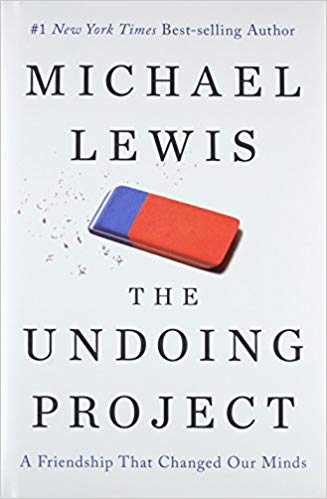Michael Lewis – The Undoing Project Audiobook
Michael Lewis – The Undoing Project Audiobook

The Undoing Project Audiobook
This is one of Michael Lewis’s finest books yet. The difficulty is to inform the tale in a way that explains the behavior biases without the need for technical conversation. Lewis accomplished this rather well.
Early in the book he covers the difficulty of hunting gamers in expert sports leagues. He keeps in mind the appeal of the halo effect, where scouts see desirable solitary attributes and also let that impression impact the analysis of various other qualities. This is later on extra generally categorized as representativeness, one of a number of heuristics individuals use to make decisions with restricted information. The Undoing Project Audiobook Free. Representativeness involves the premature characterization and categorization of an object/event/individual based on some quality that can be conveniently recognized. Other heuristics discussed include anchoring, when one takes brand-new details as well as just makes adjustments to their initial reasoning; availability, when one appoints too much weight to the information easily offered to them; and simulation, a psychological bias involving the convenience with which one can emotionally replicate options to truth. While it is recognized that heuristics are most of the times useful general rules, they can periodically lead to organized mistake.
Representativeness is explained utilizing the ‘Linda problem’, which asks whether it is more probable that Linda is a financial institution teller or a financial institution cashier as well as a member of a feminist organization, when all you’re told is that Linda is a feminist. Many respondents selected the latter choice, although the first option includes the 2nd option using a less restrictive description. Simply put, if the possibility of Linda being a bank teller is 10%, and also the likelihood of her being in a feminist company is 99%, after that the first option has a 10% opportunity of being right, while the secondly has a (10% x 99%) chance of being correct (which is less than 10%). Schedule prejudice is in a similar way described using an issue that asks whether a specific publication has more words with the kind _ _ _ _ ing or _ _ _ _ _ n _. Since words finishing in ‘ing’ are conveniently thought of, respondents chose the first option, ignoring the reality that the second alternative consists of all words that also meet the first option. Availability is checked out better, as Lewis describes exactly how Kahneman as well as Tversky strike experts for over-extrapolating from little sample dimensions.
Customer decision prejudices are touched on too. Initially, it is described how people do not appear to upgrade probabilistic end results using a Bayesian process in real world decision-making. Trial and error has also revealed the truth that human intake choices do not comply with regulations of transitivity. In other words, if a customer prefers A to B and B to C, they may sometimes also claim they choose C to A. They ultimately describe this by damaging A, B, as well as C down right into specific functions, and analogize an individual acquiring A to them truly buying a package of attributes stood for by A. In so doing, they understood that not just are small special differences in particular features virtually neglected, yet precise comparison is often not feasible since different things have various bundles of functions. Furthermore, they located that individuals show an endowment predisposition in exchange deals, designating more value to products that they already have merely because they already have it.
Perhaps the best achievement of Kahneman and Tversky was tough and using a choice to Bernoulli’s utility theory. Utility concept effectively discussed specific habits by identifying individuals as either danger forgiving, risk neutral, or take the chance of averse. If faced with picking between $50 absolutely free or taking a 50% opportunity of winning $100 or $0, a risk neutral person would be detached to the choice. A threat averse individual would take the cost-free $50 as well as stay clear of the odds, given that the utility they receive from the very first $50 is greater than that of the 2nd $50. Thus individuals do not count on pure probabilistic benefit odds. However, energy concept has not held up under centuries of analysis. Kahneman and Tversky included in this subject with the idea of regret hostility, where people position excessive weight on potential unfavorable outcomes, and then once again with loss hostility, where individuals will really want to take more danger (as a risk tolerant person would certainly in Bernoulli’s framework) when confronted with the very same decision as above yet with losses rather than gains. Michael Lewis – The Undoing Project Audio Book Online. To put it simply, if choosing between an ensured $50 loss or taking a 50% opportunity of shedding $100 or $0, a person that is threat averse on the gains side might choose to be risk forgiving on the loss side.